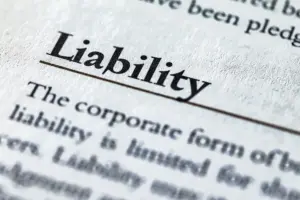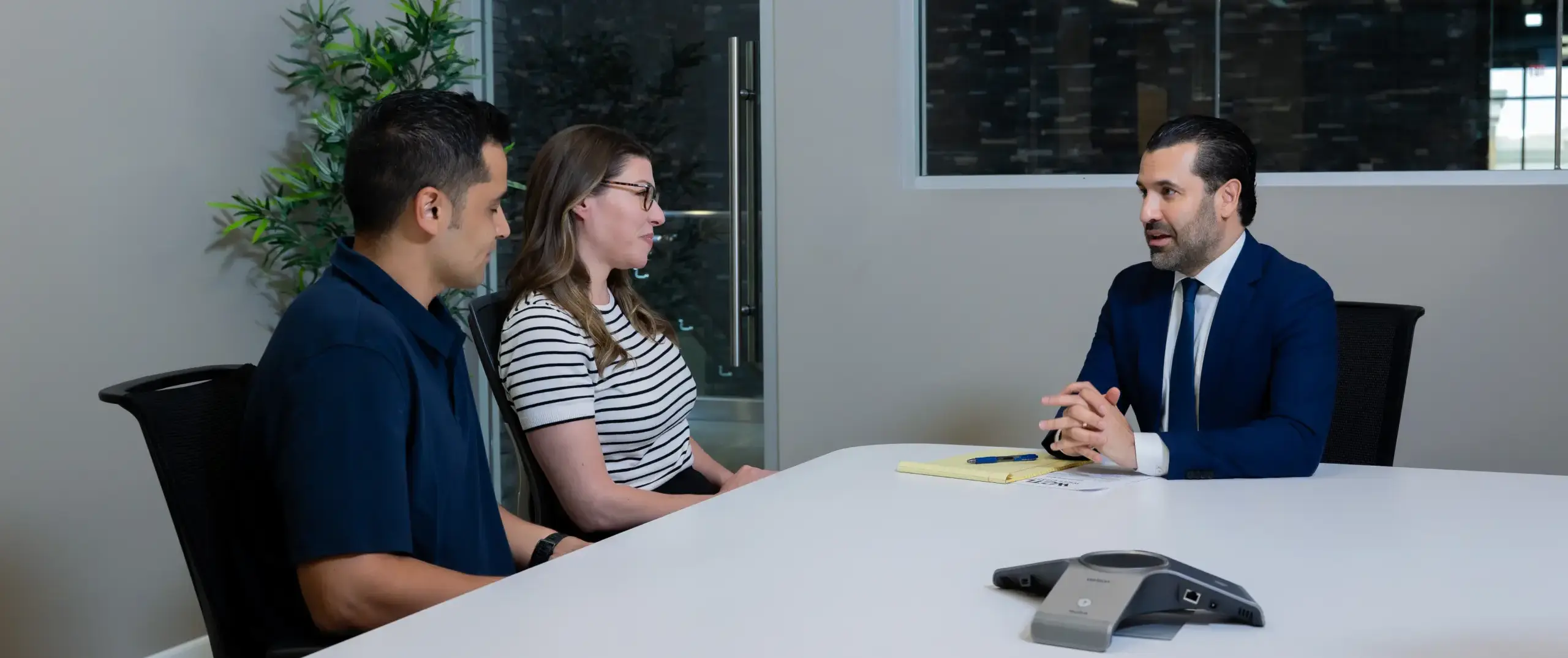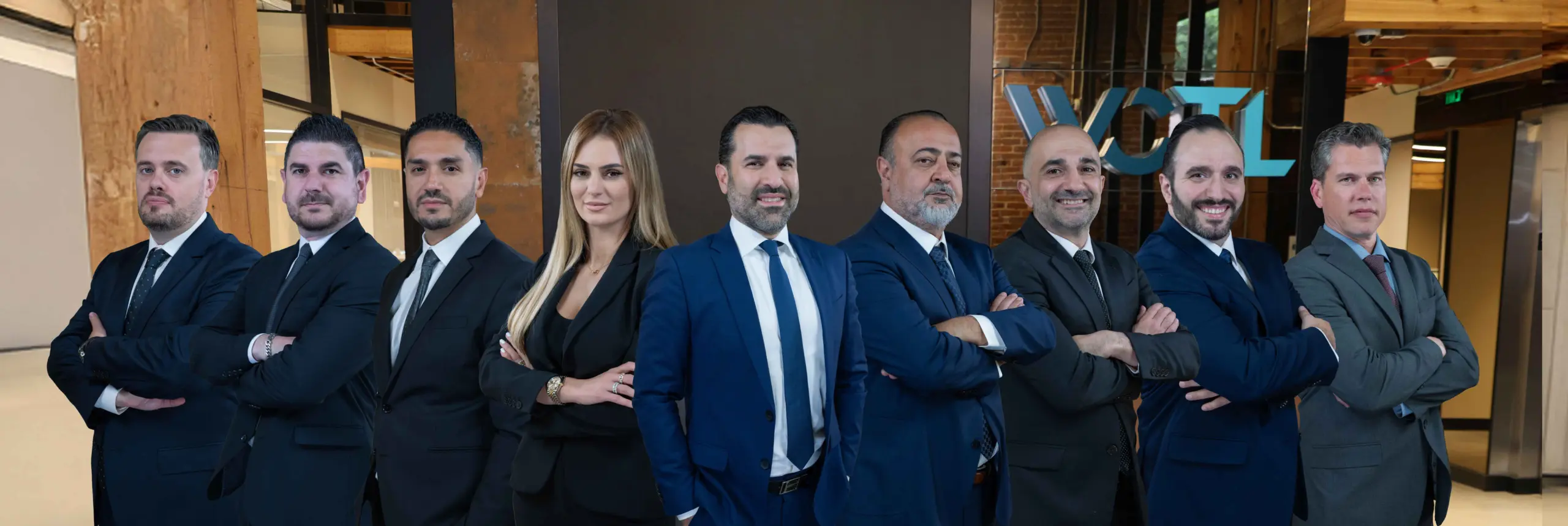Walking is part of daily life in Los Angeles. Whether you’re hopping on a Metro train, walking to class at USC/UCLA, or handling a quick errand on Broadway or Sunset. But when a driver is distracted, speeding, or fails to yield in a crosswalk, an ordinary walk can become a life-changing injury.
If you or a loved one was hit anywhere in L.A., our Los Angeles Pedestrian Accident Lawyers are ready to step in, protect your rights, and pursue the compensation you deserve.
Quick Facts About Pedestrian Accidents
- Los Angeles: City reporting shows 336 traffic deaths in 2023, with pedestrians making up more than half of the fatalities.
- California: Pedestrian fatalities declined ~8.8% from 1,213 (2022) to 1,106 (2023), per the Office of Traffic Safety
- United States: 7,314 pedestrians were killed in 2023 (~18% of all traffic deaths), with roughly 68,000 injuries, according to NHTSA.
How Pedestrian Crashes Happen in Los Angeles (And the Laws That Apply)
Crosswalks and Right-Of-Way: What Drivers Owe You
At marked crosswalks—and even unmarked crosswalks at intersections—drivers must yield and use due care to avoid you (Cal. Veh. Code §21950). Many L.A. cases start with a simple failure to look before turning right on red or making a permissive left through a crosswalk.
Mid-Block Crossings and “Jaywalking” Tickets
Outside a crosswalk, pedestrians must yield to vehicles that pose an immediate hazard (Cal. Veh.Code §21954). That doesn’t give drivers a free pass; they still owe you due care. Since Jan 1, 2023, California’s Freedom to Walk Act (AB 2147) limits “jaywalking” tickets unless a reasonably careful person would see immediate danger of a collision. In civil claims, we use these rules to push back when insurers try to blame you for crossing mid-block.
Signals, Countdowns, and the Flashing Hand
If a crash happens while the pedestrian signal is running—WALK, countdown, or the flashing hand—we use the signal indications and timing to support liability (Cal. Veh. Code §21456 / §21456.1). We request LADOT signal timing sheets, confirm whether a Leading Pedestrian Interval (LPI) was in place, and compare the programming to the moment of impact.
Blocked Crosswalks and Turning Conflicts
When cars stop inside a crosswalk, they hide pedestrians from view and force people into traffic flows. Stopping in a way that blocks the crosswalk is prohibited (Cal. Veh. Code §21970) and often pairs with driver fault in right-turn and left-turn cases, especially in busy corridors like Figueroa, Sunset, or Wilshire.
Extra Protections for Blind Pedestrians
California gives special protections to blind pedestrians using a white cane or guide dog (Cal. Veh. Code §21963). Failing to yield can be a misdemeanor—and it’s powerful evidence of negligence in injury claims.
The Policy Backdrop
California’s policy is to make walking safe and convenient (Cal. Veh. Code §21949). When our Los Angeles Pedestrian Accident Lawyers show a design or maintenance choice that undermined this policy (faded crosswalks, missing daylighting, poor lighting) that context strengthens the case for accountability.
Who Can Be Held Liable?
Depending on the facts, responsibility may rest with:
- Drivers (failure to yield, speeding, distraction, impairment).
- Employers (if the driver was on the job—delivery/service vehicles).
- Public entities (dangerous roadway conditions—signal timing, sightlines, lighting, paint visibility).
- Property owners/tenants (blocked sightlines, hazardous driveways).
- Vehicle manufacturers (rare, but defective components/ADAS issues).
California uses pure comparative negligence—you can still recover even if you’re partly at fault; any award is reduced by your percentage of fault
Liability & Evidence (Expanded — How We Prove Your Case)
When a pedestrian is hit in Los Angeles, fault rarely comes down to a single moment. Our Los Angeles Pedestrian Attorneys build liability by combining on-the-ground evidence with the rules above:
- Scene capture: Photos/video of the intersection, crosswalk paint, signal heads (“WALK/Don’t Walk”), countdown timers, lane markings, skid marks, vehicle rest positions, and lighting conditions.
- Police records: LAPD Traffic Collision Report (TCR), diagrams, the Primary Collision Factor, and CAD/911 audio where available.
- Video sources (move fast): Business CCTV or surveillance video (often 7–14 day retention), transit cameras (Metro buses/rail), and corridor cameras. We send preservation letters immediately before footage is overwritten.
- Digital forensics: Vehicle event data recorder (EDR) (speed/braking), rideshare trip logs if implicated, smartphone metadata (to test a “driver was on the phone” defense), and map/app location trails.
- Signals & timing: LADOT timing sheets, LPIs, and phase diagrams to show how the signal should have protected you
- Law integration: Crosswalk duty, mid-block yield rules, blocked crosswalks, and special protections are all applied to the facts we collect.
- Medical & economic proof: ER records, imaging, specialist notes, prognosis, wage records, HR letters, and economist reports to quantify the full impact.
Goal: turn a “he-said, she-said” into a documented, time-stamped, data-supported case that compels fair settlement—or sets you up to win in court.
Public Entity Claims in Los Angeles
Some of L.A.’s worst pedestrian crashes happen where conflicts are predictable—long crossings, high speeds, poor lighting, or faded markings. When a City of Los Angeles (or other agency) roadway condition plays a role, the rules change and the clock runs faster.
When the City (or another agency) may be liable:
- Signal timing issues: Insufficient pedestrian clearance, missing LPIs, or phasing that encourages turning conflicts.
- Visibility problems: Burned-out streetlights, blocked sightlines (landscaping, signage, poles, parked cars), poorly placed bus stops.
- Marking & surface defects: Faded crosswalks, missing high-visibility markings, potholes/uneven pavement at the crosswalk entry.
- Notice: A history of similar crashes, prior complaints, or maintenance logs showing the agency knew (or should have known) about the danger.
The legal path:
- Government Claim usually due within 6 months of injury (keeps your right to sue).
- Design & maintenance evidence via public-records requests (timing charts, logs, complaints, collision data).
- Anticipate design immunity defenses; counter with changed conditions, failure to warn, or improper implementation/maintenance.
- Connect the design to causation so adjusters/jurors see how the street created the danger.
What to Do Right After a Pedestrian Crash in L.A.
- Call 911 and get medical care—ER, urgent care, or your doctor.
- Photograph the scene—crosswalk, signals, countdowns, skid marks, vehicle damage, lighting, street signs.
- Get witness info—names/phone numbers; ask nearby businesses for camera footage.
- Save everything—medical records, bills, insurance letters, employer notes about lost time, transit/ride receipts.
- Avoid recorded statements to insurers until you speak with a lawyer.
- Call West Coast Trial Lawyers—we’ll coordinate evidence, claims, and next steps.
Deadlines (Miss These and Your Claim Can Vanish)
- California personal injury: 2 years from the date of injury (Code Civ. Proc. §335.1).
- Claims against public entities (e.g., City of L.A., LADOT): Government Claim within 6 months (Gov. Code §911.2). After a rejection, you typically have 6 months to sue; if no rejection is issued, you may have 2 years (Gov. Code §945.6). Talk to a Los Angeles Pedestrian lawyer early.
Common Pedestrian Injuries We See In L.A.
- Head & brain injuries (concussions, TBI)
- Orthopedic injuries (pelvis, tib-fib, wrist/forearm fractures from bracing)
- Spinal injuries (disc herniations, cord damage)
- Internal injuries (spleen/liver, internal bleeding)
- Soft-tissue trauma & scarring
- Psychological injuries (PTSD, anxiety, sleep disturbance)
We work closely with your providers (and independent experts when helpful) to document the full impact (physical, emotional, and financial.)
Damages We Pursue
- Medical costs (ER, surgery, imaging, rehab, therapy)—past & future
- Lost wages and loss of earning capacity
- Pain, suffering, and emotional distress
- Out-of-pocket costs (transportation, home help, mobility aids)
- Property damage (phone, glasses, clothing)
- Punitive damages (in egregious cases)
Where L.A. Pedestrian Crashes Happen
We frequently see cases along streets with heavy foot traffic, complex signal timing, and higher speeds:
- Downtown (Broadway, Figueroa, 7th/8th Streets)
- Hollywood tourism zones
- Koreatown (Wilshire, Vermont, Olympic)
- Westlake/MacArthur Park
- Venice & Westside (Lincoln, Venice Blvd.)
These corridors often appear on Vision Zero priority lists, which helps explain foreseeability and duty when we argue your case.
Why Choose West Coast Trial Lawyers
- Los Angeles focus: We know the streets, signals, police reports, adjusters, and defense tactics here.
- Evidence-driven litigation: From signal timing to sightlines to medical causation, we build the record the right way.
- Client-first service: Clear updates, help coordinating care, and guidance on bills and liens. Our track record speaks for itself, with over 1.7 billion won for our clients.
- No fee unless we win: You pay nothing until we win your case.
What We Need to Start Your Case Strong
- Photos/video of the scene (include the signal heads and crosswalk paint)
- Witness names/contacts and responding officer info
- Medical records & bills (ER, ortho, neuro, PT)
- Employer letters or pay stubs showing time off/modified duty
- Any insurance correspondence
Can’t gather everything? No Worries! Speak to our LA Pedestrian Lawyers, and we’ll take it from there.
Talk to a Los Angeles Pedestrian Accident Lawyer Today
If a driver hurts you or someone you love, you shouldn’t carry this alone. At West Coast Trial Lawyers, our team of attorneys will listen to you, explain your case in detail, and move fast to protect your claim. With over 20 years of experience, we’re based in Downtown Los Angeles and have represented clients across LA county from Hollywood to Venice.
As a result of our hard work and dedication, we have recovered over $1.7 billion in financial compensation for our clients and we will continue to advocate for our client’s rights. On top of it all, we operate on a contingency fee basis, meaning you do not pay any legal fees unless you win.
Call (213) 927-3700 or send a message for a free, no-obligation consultation with an experienced Los Angeles Pedestrian Accident Attorney.
















































































